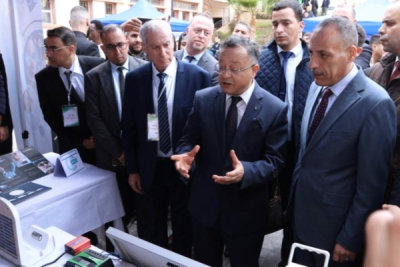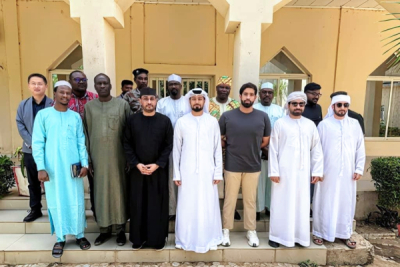In the aftermath of the Covid-19 crisis, the competition got tougher in the African mobile financial service market. The competition was led by both conventional and unconventional service providers, which are aggressively introducing ever-diversified offers. The market is now witnessing an all-out battle for opportunities.
In the past ten years, the mobile money sector greatly expanded in Africa. In 2012, less than 80 mobile financial services were present on the continent. This number rose to 173 with 621 million registered accounts and US$36.7 billion worth of transactions in 2021. The volume of transactions recorded that year was up by 23% compared with 2020 figures.
In 2021, the volume of mobile money transactions rose by 39%, year-on-year, to US$701.4 billion. The rapid expansion of the market is attracting and supporting the emergence of new players, like fintech startups. Over the past five years, the number of fintech start-ups active on the continent rose significantly, and so did the transactions they processed and the financing they raised. Some of them have been able to affirm their positioning in their home countries and even launch international expansion plans. They have now become competitors to mobile money operators but, the battle between those two economic models will surely be long since both of them have their strengths and weaknesses.
Investment volume
Since the launch of the mobile money in Africa in 2007, telecom operators have invested millions of dollars to upgrade the mobile network necessary for the transactions. They also invested in the deployment of agent networks and the development of efficient and secure software, databases, and systems to guarantee smooth transactions.
Fintech startups have also made substantial investments but the volume is far less than that made by mobile money operators. Like mobile money operators, fintech startups also invested in the development of IT systems and agent networks to support their businesses. However, they do not have mobile networks to maintain regularly. So, they have less investment requirements. Nonetheless, they need to invest heavily in high connectivity to be able to track financial transactions in real-time.
The offers
Fintech startups are succeeding because they target underserved individuals and new markets like the micro-credit segment. For Said Bourjij, an expert in finance and development (French-speaking Africa and the Mediterranean basin) and Managing Director of Epargne Sans Frontière, fintech leverages digital tools to respond to users’ needs. Their offers are dynamic but don’t cover the whole financial sector, he adds.
Over-time Mobile money has also evolved and can offer all the services offered by fintech startups. Mobile money operators like Safaricom’s M-Pesa, Orange Money, and MTN Mobile Money are already doing so in some countries. Apart from simple transactions, they added a spectrum of services like merchant and invoice payment, international transfers, micro-savings, microloans, etc. Their platforms are also dynamic.
Thanks to the dynamic of its offers and its platform, M-Pesa became Safaricom Kenya’s main growth driver in 2021 by generating 38.3% of the operators’ annual turnover (US$2.5 billion).
Accessibility
According to the GSM Association (GSMA), mobile Internet penetration was 28% in sub-Saharan Africa in 2020, and mobile penetration was 46%. In its report "The Mobile Economy Sub-Saharan Africa 2021", the Association explains that of the 1084 million people in the region, 303 million (28%) were connected, 206 million (19%) were not covered by a mobile network and 575 million (53%) were living in areas covered by mobile broadband networks but were not yet using mobile Internet services.
The GSMA added that smartphones accounted for less than 50% of the number of mobile connections while feature phones accounted for 45% of all the mobile connections during the period.
At the time, urban populations were more likely to use mobile internet than those in rural areas. So, fintech startups whose services were accessible mainly via the internet could only meet the needs of urban populations. On the other hand, mobile money operators are accessible to both urban and rural populations. So, they have an edge over fintech startups here.
“Mobile money is an enabler of many other services that can help solve critical socio-economic and environmental challenges, such as providing access to essential utilities, sustaining the livelihoods of smallholder farmers, and delivering rapid financial relief to vulnerable populations,” the GSMA explains.
Fees
Mobile money operators and fintech startups are almost offering the same services but they are not targeting the same niches. Some startups target the rural population and use affordable pricing as their main selling point in urban areas.
Mobile money operators criticize the pricing strategy adopted by fintech startups but, in the end, it contributes to lowering fees paid by users. In countries like Senegal and Côte d'Ivoire, the pricing strategy adopted by fintech startups led mobile money operators to reduce fees on their mobile money services.
In 2020, the GSMA was warning about the aggressive pricing strategy widely adopted by fintech startups. It then asked mobile money operators to diversify their income streams to avoid relying solely on fees paid by users. Indeed, in June 2020, providers that took part in the Global Mobile Money Adoption Survey reported that about 87% were generated by users’ fees.
The GSM Association pointed out that mobile money operators’ heavy reliance on transaction fees could expose them to short-term shocks.
“In addition to insulating mobile money providers from short-term demand shock, diversifying to high-value segments may also benefit users, as services can be offered at more competitive rates,” the association argued.
Regulatory framework
In some markets, the regulatory framework forced telecom operators to create a separate entity that will manage their mobile money activities. The new entities are subjected to strict legal frameworks set by the central banks of the regions or countries where they operate.
Depending on the type of services offered, there are legal requirements clearly defining the scope of their operations. Fintech startups that wish to offer similar services like the one offered by mobile money operators are subjected to the same regulation. In the West African Economic and Monetary Union (WAEMU), the central bank BCEAO strictly applies the regulation.
The requirement to create a separate entity for mobile money operations may prove an advantage for telecom operators, who could thus be freed from the requirements to maintain telecom networks and just concentrate on innovating and creating added value.
Even though there could be competition between mobile money operators and fintech startups, the GSMA praises their combined impacts on financial inclusion in Africa. It also encourages them to be more committed to users, whose choices will ultimately determine whether they are profitable or not.
Muriel Edjo



















